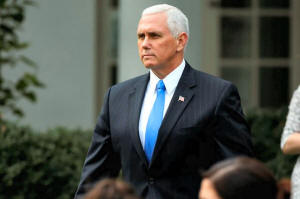|
The
Government Accountability Office said in a letter dated on
Wednesday that it had accepted a request from Democratic
Senators Amy Klobuchar, Michael Bennet and Cory Booker to
investigate the Presidential Advisory Commission on Election
Integrity.
Trump established the panel in May after charging, without
evidence, that millions of illegal immigrants voted in the
November 2016 election. Most state election officials and
election law experts say that U.S. voter fraud is rare.
Democrats and voting rights groups have criticized the panel,
arguing it could be a vehicle for changes that would make it
harder for lawful voters to cast ballots. A number of state
governments have declined to hand over information about their
voters to the White House.
In a letter last week to the GAO requesting the probe, the three
senators said the commission, which is headed by Vice President
Mike Pence, had not responded to congressional requests for
information about its activities. They said the panel's lack of
transparency could "unnecessarily diminish confidence in our
democratic process."
The White House did not immediately respond to a request for
comment on the GAO's decision to open an investigation.
The commission's vice chair, Kris Kobach, the Republican
secretary of state for Kansas and an advocate of tougher laws on
immigration and voter identification, asked states in June to
turn over voter information.
The data requested by Kobach included names, the last four
digits of Social Security numbers, addresses, birth dates,
political affiliation, felony convictions and voting histories.
More than 20 states refused outright and others said they needed
to study whether they could provide the data.
(Reporting by Eric Beech; Editing by Peter Cooney)
[© 2017 Thomson Reuters. All rights
reserved.] Copyright 2017 Reuters. All rights reserved. This material may not be published,
broadcast, rewritten or redistributed.
 |
|






